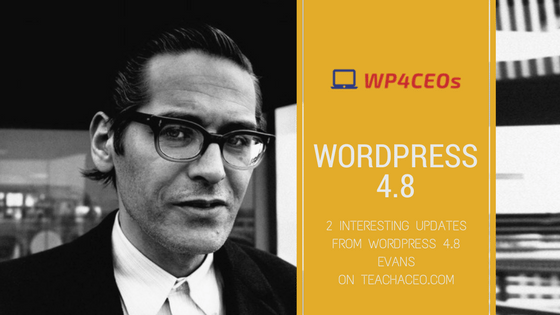You’ve heard you are what you eat, well we believe that you are what you read. Teach a CEO presents lessons from our bookshelf on how you can improve and grow your venture. We have taken gems or nuggets from our library and provide them for CEO’s, startups, entrepreneurs and business owners.
Long-Term Thinking
- Perhaps most famously, Wall Street heard derided Amazon's lack of concern about near-term quarterly earnings. Jeff Bezos, the company's CEO, was focused on long-term growth and essentially ignored analyst demands for short-term earnings. so it is now well-known. became one of the world's most valuable company and Bezos the world's richest man Dash in large part because of his focus on producing earnings, not in the next quarter but 5, 10, and 20 years down the road. (Go Long)
- When going long, the goal is to create a culture that is always focused on long-term, profitable growth. to develop a team that's open enough and trusting enough to do what it takes to build products people want and improves your productivity every year. (Go Long)
- You have to articulate the reason for the change to your board, your management team, your employees, and the community. explain how our purpose links to how we define opportunities for growth. (Go Long)
- CEOs may also make the mistake of giving the most R&D money to their biggest, most successful divisions. The problem with this approach is that the CEOs might end up starving and promising young business, or perhaps creating a culture of winners and losers within the corporation, breeding resentment, and jealousy. (Go Long)
- Few things can hurt a long-term relationship with a customer more than short-term thinking period cutting quarters, pulling back on service, and other moves that confuse quarterly earnings can often cause rifts in the relationship. (Go Long)
Leveraging Success
- If you want to be unlike most of the people in this country, you need to look at things differently. need to do things differently. corentin, you need to be different the first step to being different is to stop trying to fit in! This means that you shouldn't try to fit in with the Joneses, unless you were talking about Jerry Jones. (6 Secrets to Leveraging Success)
- As soon as you start worrying about protecting what you've built, you are turning the corner away from Innovation and making your way towards standardization. (6 Secrets to Leveraging Success)
- The key to safely expanding capacity is through Leverage. allows you to get more done with less effort, and less time, and for less money. Echo beverages the anti-child leverage gives you back everything but having children from you dash energy, free time, and disposable income. (6 Secrets to Leveraging Success)
- What I am suggesting when I say, “Bet against yourself,” is to take steps to ensure that your business will benefit from an absolute certainty – you will leave the business one day (6 Secrets to Leveraging Success)
Business Plan
- The real story on startups and their success rates reveal something very different. Most entrepreneurs never went to college, and most did not start their companies until they were well along in their careers. the average entrepreneur is nearly 40 years old when he launches, and more than 80% of all new companies are started by people over 35. More entrepreneurs are between 45 and 55 than any other cohort and entrepreneurs over 55 now create more companies and those under 35 period and–another surprise-the chances of a new company surviving is with the age of the entrepreneur. (Burn the Business Plan)
- None of America's great companies, those for which business professors were preparing the next Generations of managers bygone days, had started with written plans. Nearly all of Fortune Magazine's Legacy 100 companies including American Airlines, Disney, Dupont, General Electric, General Motors, Exxon (begun as Standard Oil), Ford, IBM, Johnson & Johnson, Procter & Gamble, McKessen, and Xerox, started without plans. (Burn the Business Plan)
- This reality contradicts a widely-held view that I should know where to start and sell company as quickly as possible, and then move on to become legendary serial entrepreneurs. (Burn the Business Plan)
- Nearly 90% of all entrepreneurs have work for other employers before starting their companies. (Burn the Business Plan)
- Perhaps the most oft-cited reason for failures that accompany couldn't get to the other side of what is Wiley referred to as the Valley of Death, the. After its founding trying to where a company can't raise enough money to finish developing its product. It dies from a lack of resources while before it can reach the point where it's cup runneth over. (Burn the Business Plan)
Misc.
- Are there advantages to having a certain amount of debt? Yes! Having a manageable amount of debt which I called good debt, allows you to acquire the things you need in life like a home loan. Your debt only becomes bad when it is unmanageable like mountains of credit card debt and you are in a financial crisis because of it. Having debt means someone trusted you enough to extend you credit, and because that will become a part of your life, I advise you get to know it and embrace it. (Life & Debt)
- Creativity is like the basil plant in your kitchen window. I called the leaves one night for a few tablespoons of pesto in, “That's it ! No More!” You find the next morning that you have all new leaves even more than before. (Am I There Yet?)
- Small businesses create many jobs but they also destroyed many jobs because most small businesses fail. Virtually all big firms are more productive than small ones–that is why they got big and that is why they pay their workers more. One particular kind of small firm contribute to technological innovation, the technology – base startup, and its success depending on scaling up, either on its own or an affiliation with large corporations, which are themselves extremely innovative because they can marshal the resources needed to invest in innovation. (Big Is Beautiful)
- Our argument in this book has been that the benefits provided by large, privately-owned enterprises, ranging from contributions to technological innovation to the creation of well-paying jobs and increases and National and Global productivity growth, will continue to make big business essential for prosperous Society. (Big Is Beautiful)
CEO Bookshelf
Go Long: Why Long-Term Thinking Is Your Best Short-Term Strategy: The lifespans of companies are growing shorter each day. Why do some companies thrive and grow, while others fail? Inspired by the CEO Academy, the annual off-the-record gathering of chief executive officers organized by the authors, Go Long reveals how some of the world’s most prominent business leaders resisted short-term pressures to successfully manage their organizations for the long term, and in turn, aim to create more jobs, more satisfied customers, and more shareholder wealth. In Go Long, authors Dennis Carey, Brian Dumaine, Michael Useem, and Rodney Zemmel take you behind-the-scenes to witness the business decisions that are enabling leading organizations to outsmart and outlast the competition.
Am I There Yet?: The Loop-de-loop, Zigzagging Journey to Adulthood: This on-point guide to growing up by Instagram sensation Mari Andrew captures the feelings and comical complexities of millennials and adulthood with essays and illustrations. In the journey toward adulthood, it is easy to find yourself treading the path of those who came before you; the path often appears straight and narrow, with a few bumps in the road and a little scenery to keep you inspired. But what if you don’t want to walk a worn path? What if you want to wander? What if there is no map to guide you through the detours life throws your way? From creating a home in a new city to understanding the link between a good hair dryer and good self-esteem to dealing with the depths of heartache and loss, these tales of the twentysomething document a road less traveled—a road that sometimes is just the way you’re meant to go.
6 Secrets to Leveraging Success: A Guide for Entrepreneurs, Family Offices, and Their Trusted Advisors: As an actuarial analyst for some of the largest companies in the world and as a CERTIFIED FINANCIAL PLANNER Professional, Christopher Jarvis gained critical insights into the successful operations of hundreds, if not thousands, of businesses and professional practices. He has been solving complex business, investment, and insurance concerns for his clients for more than twenty years.
Burn the Business Plan: What Great Entrepreneurs Really Do: Business schools teach that the most important prerequisite for starting a business is a business plan. Nonsense, says Carl Schramm in Burn the Business Plan, who for a decade headed the most important foundation devoted to entrepreneurship in this country. Microsoft, Apple, Facebook, and Google are just a few of the companies that began without one. Schramm explains that the importance of a business plan is only one of the many misconceptions about starting a company. Another is the myth of the kid genius—that all entrepreneurs are young software prodigies. In fact, the average entrepreneur is thirty-nine years old and has worked in corporate America for at least a decade. Schramm discusses why people with work experience in corporate America have an advantage as entrepreneurs. For one thing, they often have important contacts in the business world who may be customers for their new service or product. For another, they often have the opportunity to strategize with knowledgeable people and get valuable advice. Burn the Business Plan tells stories of successful entrepreneurs in a variety of fields. It shows how knowledge, passion, determination, and a willingness to experiment and innovate are vastly more important than financial skill. This is an important, motivating look at true success that dispels the myths and offers invaluable real-world advice on how to achieve your dreams.
Big Is Beautiful: Debunking the Myth of Small Business (MIT Press): Why small business is not the basis of American prosperity, not the foundation of American democracy, and not the champion of job creation. In this provocative book, Robert Atkinson and Michael Lind argue that small business is not, as is widely claimed, the basis of American prosperity. Small business is not responsible for most of the country's job creation and innovation. American democracy does not depend on the existence of brave bands of self-employed citizens. Small businesses are not systematically discriminated against by government policy makers. Rather, Atkinson and Lind argue, small businesses are not the font of jobs, because most small businesses fail. The only kind of small firm that contributes to technological innovation is the technological start-up, and its success depends on scaling up. The idea that self-employed citizens are the foundation of democracy is a relic of Jeffersonian dreams of an agrarian society. And governments, motivated by a confused mix of populist and free market ideology, in fact go out of their way to promote small business. Every modern president has sung the praises of small business, and every modern president, according to Atkinson and Lind, has been wrong. Pointing to the advantages of scale for job creation, productivity, innovation, and virtually all other economic benefits, Atkinson and Lind argue for a “size neutral” policy approach in both the United States and around the world that would encourage growth rather than enshrine an anachronism. If we overthrow the “small is beautiful” ideology, we will be able to recognize large firms as the engines of progress and prosperity that they are.
Life & Debt: A Fresh Approach to Achieving Financial Wellness: Life & Debt is not your typical “get debt free” book…It’s about learning to love and embrace your debt because in today’s world, it is practically impossible to be debt free. Life & Debt is not about teaching life without debt, or to be free of debt, but learning to live with debt and embracing it to the extent that you manage it and take on debt that makes sense for your life. “Life & Debt is a terrific book for people who are tired of living paycheck-to-paycheck because of their debt.”Whether you are recovering from past debt, trying to keep from getting into more debt, or going through a life transition (marriage, divorce, retirement), the lessons in this book explain in simple terms how to properly manage your debt. From nearly two decades of experience in the industry, leading debt authority Leslie Tayne has finally written the ultimate real-world guide for anyone with debt.











































 |
|